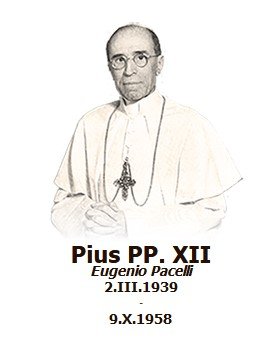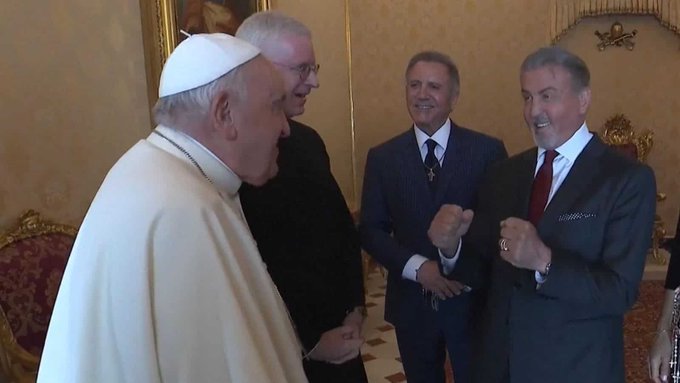I doubt that there is an explanation other than that JPII was too Catholic.
From Catholic Arena
By Kevin Hay
Since 1939, Popes have given 3 sorts of audiences.
Special audiences are for Heads of State, ambassadors, etc.
Influential people like Rocky — Sylvester Stallone — can get a private audience.
Then, on Wednesday mornings the Pope gives a general audience [GA] to all who attend St. Peter’s Square. He does not say Mass but does deliver “an address” — a homily.
Hold that thought!
General Audience Addresses

Before we get to the question suggested by Nick Donnelly, readers should know that GA addresses are translated into a variety of languages and compiled under the Pope giving the address.
The first ‘general address’ I found was given by Pius XII on 26 April 1939. The world was in turmoil and WWII started that September.
Multiple translations became commonplace after Vatican II [Paul VI] and Pope Francis’ first general address was translated into 9 languages: Arabic, Croatian, English, French, German, Italian, Polish, Portuguese & Spanish.
In comparison, the first address of the 6 other Popes since 1939 were translated as noted below:
Benedict XVI: Croatian, English, French, German, Italian, Portuguese & Spanish: 7 languages.
John Paul II: English, French, Italian, Portuguese & Spanish: 5 languages.
John Paul I: English, French, Italian, Portuguese & Spanish: 5 languages.
Paul VI: His first is not documented: the second on 18 Dec 1963, Italian & Spanish: 2 languages.
John XXIII: Italian & Spanish: 2 languages.
Pius XII: Italian only: 1 language.
HAS A TRANSLATION BEEN ERASED?
Below is the allegation made by Nick Donnelly on 𝕏 — formerly Twitter.
Donnelly prides himself as being 'one of Pope Francis's most ardent and outspoken critics' and implies that the missing translation/s is to remove St. JPII’s catechesis. (The Appendix below confirms that there is no English translation available for 10 September 1986.)
St. John Paul II’s ADDRESSES
St. John Paul II was Pope between 1978 - 2005. If you reference the Appendix you can see that an English translation was consistently available for his addresses from 1978 to mid-1980 and then onward from December 1996. (NB: only one page per year is appended.)
For the intervening ~16 years [mid-1980 to the end of 1996] I found only 3 English translations: 23 August 1989; 24 May 1989 & 9 July 2003. (Indeed, the only translation available for 9 July 2003 is English!)
Occam’s Razor: "The simplest explanation is usually the best one."
The simplest explanation — if improbable — is that no English translator was routinely available in the Vatican between 1980-1996. That said, Nick has shown that at least one English translation is missing.
I am hoping that there is still an innocent reason, such as the translation being removed because it was inaccurate from what was said. (Anyone wishing to read the addresses in English can use an on-line translation service / Google Translate.)
This issue merits a proper explanation. If someone has information, please DM me on 𝕏, or email the editor@catholicarena.com. CA will keep you updated!



No comments:
Post a Comment
Comments are subject to deletion if they are not germane. I have no problem with a bit of colourful language, but blasphemy or depraved profanity will not be allowed. Attacks on the Catholic Faith will not be tolerated. Comments will be deleted that are republican (Yanks! Note the lower case 'r'!), attacks on the legitimacy of Pope Leo XIV as the Vicar of Christ, the legitimacy of the House of Windsor or of the claims of the Elder Line of the House of France, or attacks on the legitimacy of any of the currently ruling Houses of Europe.